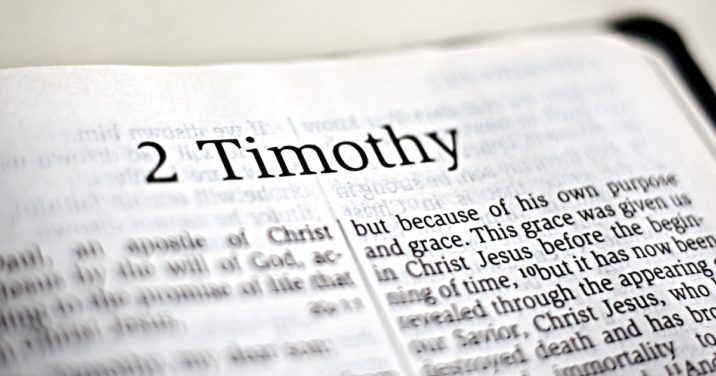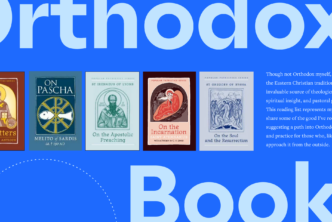In this video and transcript excerpt from the Bible Survey course on 2 Timothy, Dr. Kenneth Waters discusses issues of Paul’s authorship of the Pastoral Epistles in light of the familiarity evidenced in the letters to Timothy.
***
Let us now consider the persons of Timothy and Titus themselves—Timothy and Titus, sons of Paul in the faith.
[We are] especially interested in the significance of Timothy and Titus, not only for their roles as companions of Paul the apostle in his ministry, but we’re also asking about the significance of Timothy and Titus as recipients of this collection of letters.Pauline authorship
Sometimes the most difficult truths to see are the most obvious ones. This is especially true in biblical studies. For example, it is highly unlikely that such familiar and personal letters to Timothy and Titus would have been written by anyone other than Paul the apostle.
Personal character
There are just some qualities or traits that cannot be imitated or faked. The intimacy, the familiarity, and the personal character of the Pastoral Epistles are among those qualities or traits that cannot simply be imitated or faked.
Individual recipients
Moreover, letters like these are addressed to individuals: “to Timothy” and “to Titus.” If these letters, then, were pseudonymous—that is to say, written in the name of Paul by someone other than Paul—then not only would it be necessary for Paul to have died by the time of the composition and the sending of these letters, but also, Timothy and Titus and their families would also have died.
In other words, everyone and anyone who would know of Timothy and Titus and their interactions with Paul the apostle would have had to have passed off the scene by this time so that there would be no one available to expose these three letters as the work of someone other than Paul.
Significance
Among the strongest evidence, then, for the authenticity of these letters is that they are addressed to individuals, and they have highly personal content that are connected to those individuals. Timothy and Titus are, therefore, significant because they authenticate the voice that is speaking to them.
There is only one voice that can speak to them in this highly familiar and personal way, and that is the voice of Paul. Therefore, knowing what we can about Timothy and Titus helps us to know more about Paul the apostle. Therein lies the significance of Timothy and Titus as recipients of these letters.
Timothy and Titus, in fact, become windows into the personality of Paul the apostle. So, by knowing what we can about these two recipients of these letters, we can know more about the sender of these letters.
Who is Timothy in the Bible?
So we ask the question: Who, then, is Timothy? And we immediately know that Timothy is a resident of Lystra, an Asian city, one of the cities in the southern part of that area known as Asia Minor, now modern-day Turkey.
Parents
He is also the son of a Jewish Christ-believing mother and Greek father. Interestingly, we learn this not from the Pastoral Epistles but from the book of Acts, Acts 16:1–3. Here in the book of Acts, we learn that “Paul went on also to Derbe and to Lystra, where there was a disciple named Timothy, the son of a Jewish woman who was a believer; but his father was Greek. He,” meaning Timothy, “was well spoken of by the believers in Lystra and Iconium. Paul wanted Timothy to accompany him; and he took him and had him circumcised because of the Jews who were in those places, for they all knew that his father was a Greek.”
The text of Acts 16:1–3 identifies the Jewish mother of Timothy as a believer in Christ, but it does not say the same about Timothy’s Greek father. We, in fact, have very little information about Timothy’s Greek father. We cannot even be sure of his ongoing role in Timothy’s life, if there was one.
Circumcision
However, the writer of the book of Acts—that is to say, Luke—mentions the father of Timothy because he explains why this son of a Jewish mother was yet uncircumcised. It was simply a requirement that went unsupported by his father.
Paul, therefore, had to step into the place of Timothy’s father and have him circumcised. This was a quite unusual step for Paul given his strong opposition to circumcision for members of his churches. The difference, of course, was that Timothy was not a gentile.
As the son of a Jewish mother, Timothy himself was considered a Jew. Therefore, if Timothy remained an uncircumcised Jew, he would have remained unaccepted by the Jewish communities of Derbe, Lystra, and Iconium where Paul was evangelizing.
And keep in mind that this was during Paul’s second missionary journey. Timothy, therefore, would have been incapable of functioning as a witness to Jesus Christ in those areas. Paul, therefore, had to have him circumcised, and Paul did.
Acts and Timothy
The convergences between the portraits of Paul and Timothy in the book of Acts and the letters to Timothy are important in that they demonstrate the historicity and the authenticity of both the book of Acts and the letters to Timothy. It is clear that the author of the book of Acts and the author of the letters of Timothy are not dependent upon each other.
***
Explore more about the book of 2 Timothy, or find more courses in the Bible Survey Video Series.






